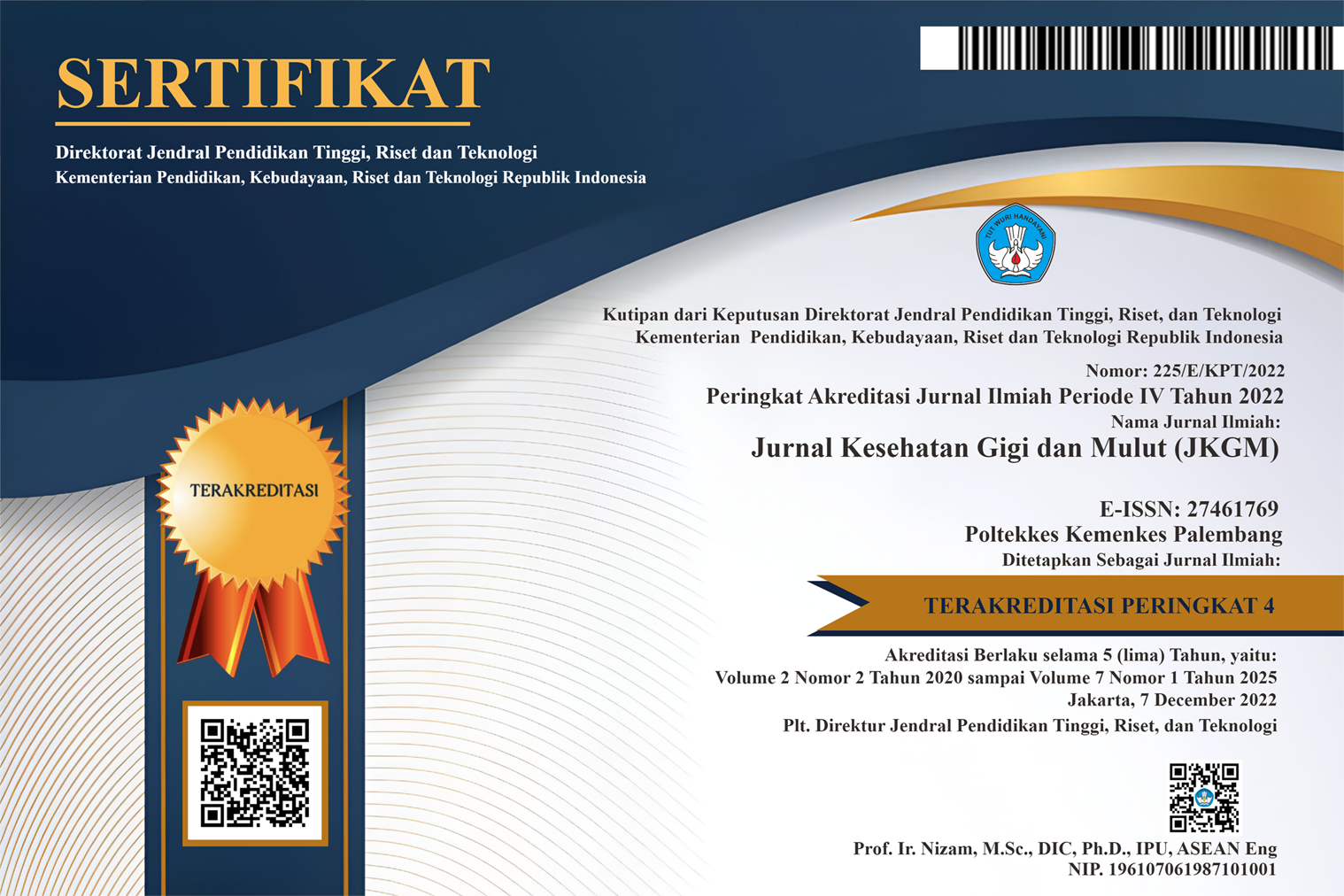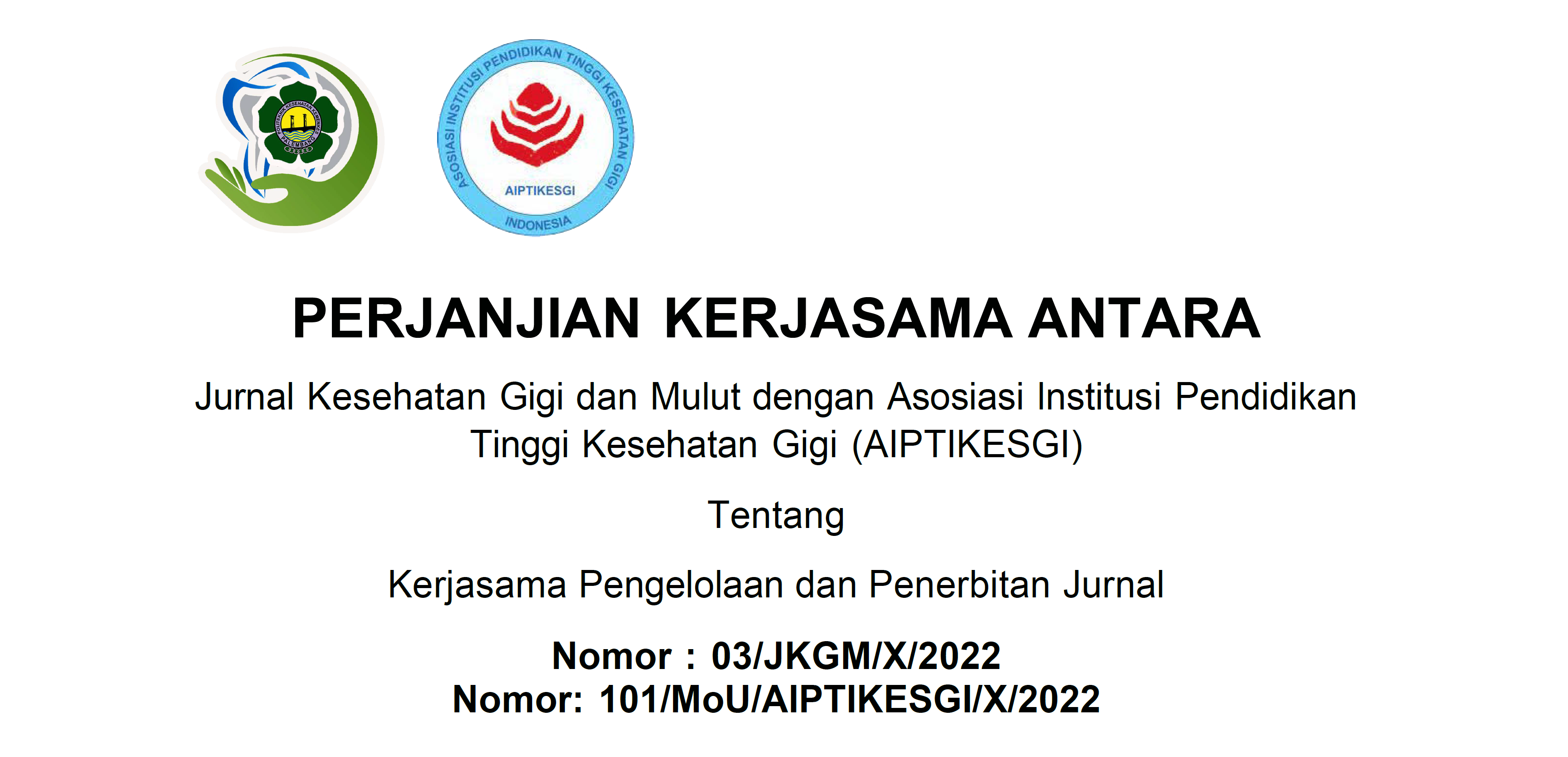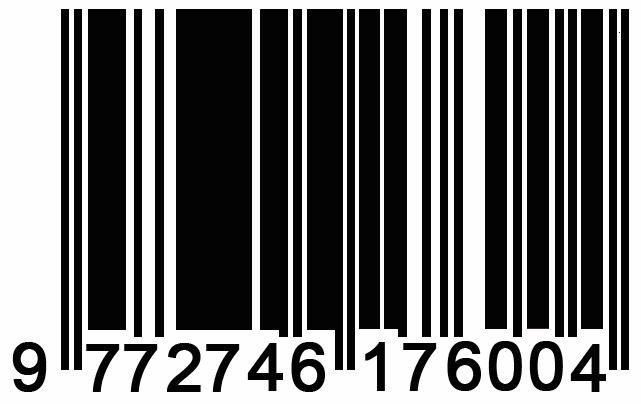ANTIBACTERIAL EFFECTIVENESS OF RED WATERMELON RIND (CITRULLUS LANATUS) EXTRACT AGAINST STREPTOCOCCUS MUTANS
Abstract
Latar belakang: Salah satu bakteri penyebab utama terbentuknya plak gigi yaitu Streptococcus mutans. Obat kumur merupakan larutan yang berfungsi untuk menurunkan jumlah mikroba dalam rongga mulut, mencegah bau mulut dan penyakit periodontal serta pembentukan plak gigi. Bahan alami yang berpotensi untuk dijadikan obat kumur alternatif yaitu kulit semangka merah (Citrullus lanatus). Kulit semangka merah mengandung senyawa antibakteri seperti alkaloid, fenol, flavonoid, saponin dan tanin. Tujuan: Untuk mengetahui efektivitas antibakteri ekstrak kulit semangka merah (Citrullus lanatus) terhadap Streptococcus mutans. Metode: Penelitian ini merupakan penelitian eksperimental laboratoris in vitro. Kelompok perlakuan menggunakan ekstrak kulit semangka merah konsentrasi 5%, 12%, 25% dan 50%. Kelompok kontrol menggunakan akuades. Uji daya hambat antibakteri menggunakan metode difusi cakram. Data dianalisis dengan dengan uji One Way Anova dan uji Post Hoc (Tukey HSD). Hasil: Daya hambat ekstrak kulit semangka merah terhadap Streptococcus mutans pada konsentrasi 5% dan 12% dikategorikan kuat, konsentrasi 25% dan 50% dikategorikan sangat kuat. Kesimpulan: Ekstrak kulit semangka merah (Citrullus lanatus) memiliki efek antibakteri terhadap Streptococcus mutans.
Copyright (c) 2023 Jurnal Kesehatan Gigi dan Mulut (JKGM)

This work is licensed under a Creative Commons Attribution-ShareAlike 4.0 International License.
Authors who publish with this journal agree to the following terms:
- Authors retain copyright and grant the journal right of first publication with the work simultaneously licensed under a Creative Commons Attribution License that allows others to share the work with an acknowledgement of the work's authorship and initial publication in this journal.
- Authors are able to enter into separate, additional contractual arrangements for the non-exclusive distribution of the journal's published version of the work (e.g., post it to an institutional repository or publish it in a book), with an acknowledgement of its initial publication in this journal.
- Authors are permitted and encouraged to post their work online (e.g., in institutional repositories or on their website) prior to and during the submission process, as it can lead to productive exchanges, as well as earlier and greater citation of published work















